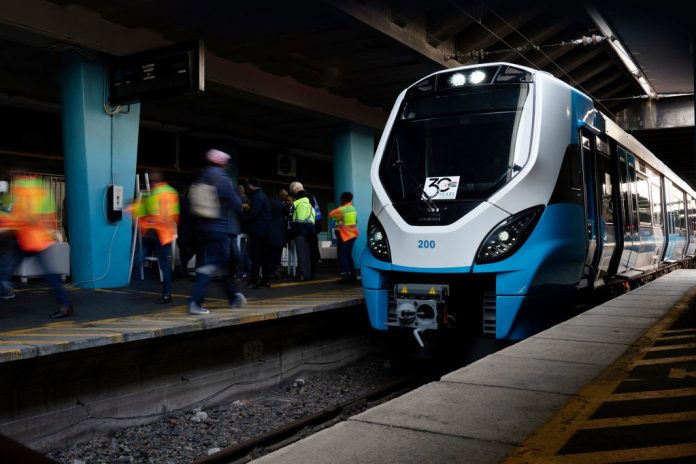The City of Cape Town is forging ahead with its plans to assume control of passenger rail services, aiming to have detailed business plans ready by mid-2025.
This follows the City Council’s adoption of a comprehensive Rail Feasibility Study, which outlines three potential ownership models for managing the metro’s passenger rail network.
Mayor Geordin Hill-Lewis emphasized the significance of rail devolution, describing it as essential for creating a functional, efficient service aligned with the City’s constitutional mandate to provide integrated public transport.
He highlighted the potential benefits for lower-income households, who could collectively save R932 million annually if trains were fully operational.
“We envision scaling up passenger numbers, introducing new train sets, expanding routes, and upgrading stations with affordable housing developments over the next two decades.”
In a breakthrough moment, the City also received a signed Service Level Plan (SLP) from Prasa after months of negotiations.
The SLP establishes a framework for collaboration, enabling the City to monitor progress on improvements through a joint committee with Prasa. It also ensures accountability in meeting commitments such as station upgrades, new train deployments, and the revival of dormant service lines.
Under the SLP, the City will provide municipal services to enhance rail operations, promote transit-oriented development along rail corridors, and expedite permit approvals within its jurisdiction.
Exploring Ownership Models
The Rail Feasibility Study, initiated in July 2022, examined the implications of devolving rail services to the City.
It proposed three ownership scenarios:
- The City assumes ownership, operations, and maintenance, absorbing Prasa staff.
- The City owns rail assets but outsources operations and maintenance through a concession model, with the concessionaire absorbing Prasa personnel.
- The City procures an integrated solution through a large-scale concession arrangement.
These models were evaluated for their financial feasibility, with estimated costs totalling R123 billion over 30 years. The study concluded that subsidies from the National Government and private sector investments would be essential.
Councillor Rob Quintas, the Mayoral Committee Member for Urban Mobility, noted the importance of these plans:
“We need clarity on capital requirements to replace ageing infrastructure and expand the network, particularly for high-demand routes like Strand to Bellville and underserved areas such as Blue Downs.”
The City’s comprehensive approach could potentially drive economic growth and improve mobility for millions of residents.


